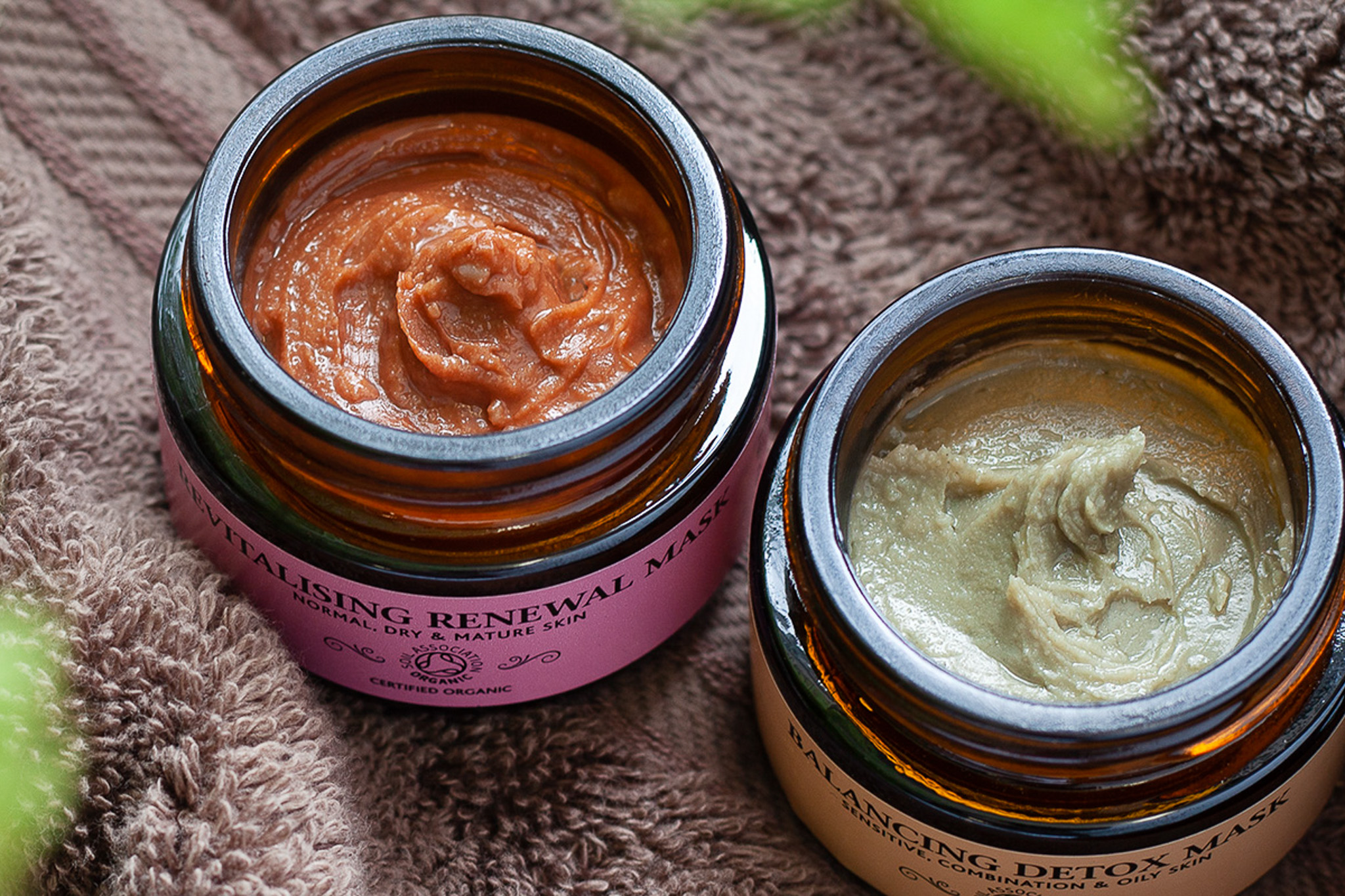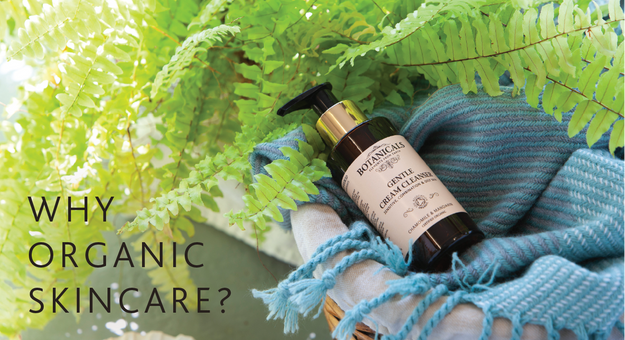Why Organic Skincare?
24th Nov 2024
The skin is the largest organ in the human body and has a number of essential purposes which include:
- The absorption of beneficial nutrients (such as vitamin D from the sun) and through application of important minerals and long-lost herbal remedies (think of how hormone patches work).
- To expel toxins.
- Prevent loss of moisture.
- To act as a barrier against external threats such as chemicals, allergens and other toxic substances.
Being mindful of the skin’s function is fundamental when choosing skincare products.
Like food, the quality and efficacy of your chosen skincare products is vital to health and wellbeing. What we apply to our skin is really no different to what we put into our bodies through our food choices.
Would/Could you eat your skincare products?
We know food choices are directly linked to maintaining good health and vitality. There is a vast difference between food that is produced ‘organically’ and food that is mass produced for convenience …with very little nutritional benefit. It is exactly the same with skincare.
You couldn’t grow most of the ingredients listed on the label of a conventional skin care product, so why apply them to your skin? (Interestingly, you could eat Botanicals products with no ill effects - but we wouldn’t recommend it!)

Food for skin.
By making a conscious choice to switch to organic, you are literally ‘feeding’ your skin. But it doesn’t stop there.
Most organic skincare products typically contain high percentages of vegetable oils, butters and waxes which are highly beneficial to the skin. But it’s important to consider (like food) how these ingredients are produced.
No pesticides, chemical herbicides and fertilisers
Under organic certification, the use of pesticides, chemical herbicides and fertilisers are not permitted. This is important because residue from these chemicals is retained in the raw material and inevitably ends up in the finished product (yuck)!
Chemical processing is not allowed under organic certification and raw materials are typically cold-processed, meaning the essential nutrients are retained and not destroyed by processing methods or heat.
Certified organic skincare products do not contain any of the synthetic chemicals found in the majority of cheaply and mass-produced conventional products, (including many expensive ‘high end’ brands), which many people can be sensitive to. Skin sensitivity is very common. You can probably understand why this is so by simply reading the back of a skincare product label.
What do Bananas and Humans have in common?
According to research, humans share 50% of our genetics with bananas!¹ Our bodies recognise naturally grown and produced products (given we share the same DNA) and react adversely with allergies and sensitivities to chemical laden products that the body simply doesn’t recognise and considers ‘alien’.
Organic, a much abused word in skincare
The word ‘organic’ is used today in all kinds of products, from clothing to food. In skincare it is grossly misused and it is often confused with the term “natural” and applied without meeting the true meaning of organic.
In food production “organic” is tightly defined and controlled by the regulatory bodies.² Every stage of the production process, from seeds to the final processed food is included in the rules governing the use of the term “organic. Organic producers have to adopt different approaches to maintaining soil fertility and animal and plant health and there are clear rules on labelling and on which products can and cannot use the organic logo.
In skincare there is no regulation preventing the term ‘organic' being used in marketing or product labelling. Even if a skincare product contains as little as 1% organic ingredients, producers will often describe the product as being natural or organic. In the UK, skincare products are controlled by the Regulation (EC) No 1223/2009 on Cosmetic Products and it says nothing about the use of organic products in formulations. Only those skincare products carrying a “Certified Organic” symbol from the Soil Association or similar body can assure the consumer that the product is organic.
Is it worthwhile undertaking certification of a skincare product? In my opinion, the only way to guarantee, quality, purity and efficacy in a skincare product is by looking for an organic certification symbol on the label. If you can't find one, the chances are the product is not truly organic.
If it’s not organic, ask yourself, do I really want to put that on my skin?

